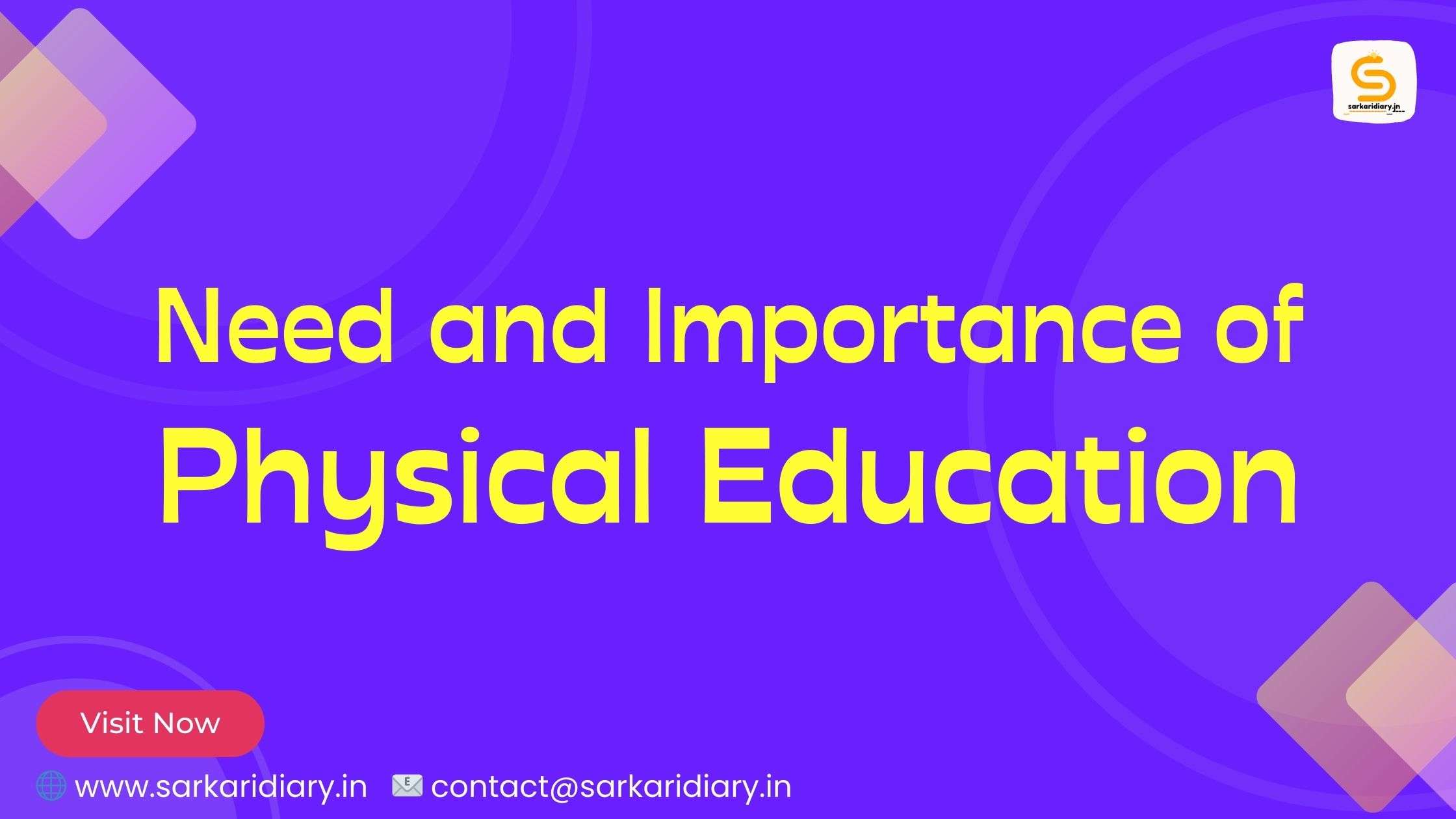Welcome to today’s post, where we dive deep into the need and importance of physical education. Whether you’re new to the concept or already familiar with it, this article aims to provide valuable insights into why physical education is essential for every student. So let’s get started!
The Importance of Physical Activity
Physical education goes beyond just playing sports or exercising. It plays a crucial role in the overall development of students. Regular physical activity has numerous benefits for our physical, mental, and emotional well-being. It helps improve cardiovascular health, build strength and endurance, and prevent chronic diseases like obesity and diabetes.
Moreover, physical activity is linked to improved cognitive functions, increased concentration, better memory retention, and enhanced problem-solving skills. When students engage in physical education, they not only stay fit but also sharpen their minds for better academic performance.
Developing Healthy Habits
Physical education is a great platform for instilling healthy habits in students from an early age. Through structured activities, students learn the importance of regular exercise, proper nutrition, and good personal hygiene. These habits lay the foundation for a healthy lifestyle that can be carried into adulthood.
Additionally, physical education teaches teamwork, cooperation, and sportsmanship. It provides a safe environment where students can learn to work together, respect each other’s abilities, and develop valuable social skills. These skills are not only beneficial during team sports but also in various aspects of life, including relationships, teamwork in the workplace, and community engagement.
Overcoming Challenges and Building Resilience
Physical education offers students an opportunity to face challenges and overcome them. It pushes students out of their comfort zones and encourages them to step up, take risks, and embrace failure as a learning experience. Whether it’s improving their sports skills or participating in a challenging physical activity, students learn to persevere, set goals, and develop resilience.
This resilience built through physical education can be applied to other areas of life as well. Students become better equipped to face academic challenges, personal setbacks, and future obstacles. It helps them develop a growth mindset, where they believe that their abilities can be improved through hard work and dedication.
Further Steps and Resources
If you’re interested in delving deeper into the topic of physical education, there are plenty of resources available. Start by exploring books on physical fitness, health, and sports psychology. Look for reputable websites that provide information and guidelines on physical education curricula, activity ideas, and strategies for incorporating physical activity into daily routines.
Additionally, consider joining sports clubs, fitness classes, or recreational leagues in your community. These provide opportunities for continued physical activity outside of school and can foster a lifelong love for sports and fitness.
Conclusion
In conclusion, physical education plays a vital role in the holistic development of students. It not only promotes physical health but also nurtures mental and social well-being. By engaging in regular physical activity, students develop healthy habits, build resilience, and learn important life skills like teamwork and cooperation.



